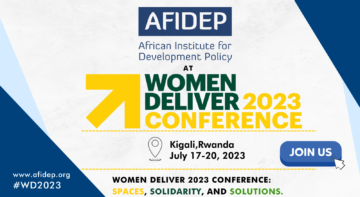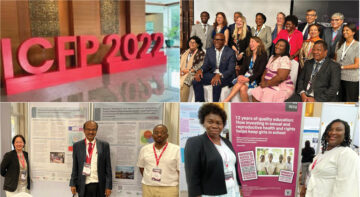News

On July 9th, 2012, The Lancet launched a major new series revealing the evidence of the effects of population growth on people’s well-being and the environment.
In line with the July 11th, 2012 DfID- Bill & Melinda Gates Foundation Family Planning Summit in London, The Lancet Special Issue on Family Planning provides the scientific evidence to help justify the need for accelerated investments in family planning and increased access to contraceptives.
Through six papers, The Lancet Special Issue illustrates how family planning is a cross-cutting development issue central to achieving the MDGs, and that family planning is one of the most cost effective development tools available.
The July 9th symposium presented the six papers and was followed by a panel discussion led by The Lancet’s Editor-in-Chief, Dr. Richard Houton.
AFIDEP’s Contributions
AFIDEP had a central role in coordinating the drafting and signing of the African Leaders commentary entitled “Making Family Planning as a National Development Priority” in The Lancet Special Issue. AFIDEP’s commitment enabled the African Leader’s commentary to be signed by the Prime Minister of Rwanda and the President and Prime Minister of Ethiopia.
AFIDEP is further engaged in managing the dissemination of the Lancet Special Issue to promote policy and program responses in Kenya and in the East and Southern Africa Region. The dissemination will particularly aim to increase commitment and investment in family planning among government, development partners, and other key decision makers.
Through a variety of advocacy activities involving government officials, parliament, development partners, mass media, and family planning program implementers, donors, and advocates, AFIDEP plans to:
- Increase awareness of the health, environmental and economic benefits of investing in family planning among policy makers and journalists;
- Reinforce knowledge of family planning advocates and champions to influence prioritization of, and increased investments in family planning; and
- Increase public exposure to information on the health, environmental and economic benefits of family planning.
Related Posts





